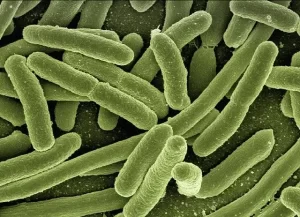How to gene-edit ipsC to produce a universal cellular immunotherapy?
- Did Cloud Seeding Unleash a Deluge in Dubai?
- Scientists Identify Gut Bacteria and Metabolites that Lower Diabetes Risk
- OpenAI’s Model Matches Doctors in Assessing Eye Conditions
- UK: A Smoke-Free Generation by Banning Sales to Those Born After 2009
- Deadly Mutation: A New Monkeypox Variant Emerges in the DRC
- EPA Announces First-Ever Regulation for “Forever Chemicals” in Drinking Water
Nature: How to gene-edit ipsC to produce a universal cellular immunotherapy?
Nature: How to gene-edit ipsC to produce a universal cellular immunotherapy? Adoptive cell therapy has broad application prospects in clinical practice, especially for certain cancers. However, the current clinical treatment mainly uses the patient’s own cells. This personalized patient-derived T cell production method is limited to small-scale clinical applications due to labor intensity, time-consuming, and high cost.
The team of Kyoto University professor Shin Kaneko is developing iPSC technology, which has the potential to make cellular immunotherapy available to all patients. His research team published an article in Nature Biomedical Engineering, reporting how to gene-edit ipsC to produce a universal cellular immunotherapy.
The cell Kaneko focuses on is the T cell, which has the strongest anti-cancer response. In order to solve the problem of using the patient’s own T cells, donor-derived T cells provide an option, but they also bring risks.
“The ideal T cell product for cancer immunotherapy needs not only to be effective against cancer, but also to avoid the host immune system and avoid causing graft-versus-host disease.” He explained.
Graft-versus-host disease and graft-versus-host reaction are the reasons why organ transplantation and cell therapy require patient-donor matching. If there is a mismatch, the donor’s immune cells or the patient’s immune system may trigger a violent response that is more dangerous than the disease itself.
Different cell types can complicate matching, which is why patients’ own cells are usually used in adoptive cellular immunotherapy, even if they have been damaged by the disease.
“In order for the graft to survive, three types of immune cells need to be suppressed. Among them, CD8 T cells cause the strongest and most dangerous response. In addition, CD4 T cells and NK cells must also be considered.” Kaneko said.
Immune cells respond to proteins expressed by foreign cells through receptors. The most important of these proteins is the human leukocyte antigen (HLA). Some research groups have explored the use of gene editing to eliminate HLA and other immune-activating proteins in transplanted T cells.
However, as the first author of this study, Dr. Bo Wang, said, this method may damage T cells. “Healthy T cells expand when they come into contact with cancer cells. However, multiple rounds of gene editing weaken this expansion ability. It also leads to T cell depletion.” T cell depletion is a common problem in cancer, and iPSC can Provide a solution to this problem.
ipsC has unlimited expansion potential and can differentiate into any type of cell, including T cells for adoptive cellular immunotherapy. Importantly, their expansion and differentiation potential are not affected by multiple rounds of gene editing.
Therefore, the researchers explored which genes need to be edited. They chose B2M for CD8 T cells, CITTA for CD4 T cells, and a special type of HLA (HLA-E) for NK cells. These genes were previously thought to regulate the activation of their respective immune cells. In addition, they also knocked out the PVR gene (the ligand PVR encoding the NK cell activation receptor DNAM-1), which further inhibited the activation of NK cells.
Next, the edited iPSC was differentiated into T cells (iPS-T cells), and the researchers found that it has a good anti-cancer effect without stimulating immune cells. CAR is a synthetic receptor that can greatly enhance the ability of T cells to detect and kill cancer cells.
The current clinical CAR therapy uses the patient’s own T cells, and these T cells also have the above-mentioned shortcomings. The Kaneko team has integrated CAR technology into their iPS-T cells and confirmed that gene editing will not affect the effectiveness of CAR.
Therefore, the research team added CAR to ips-T cells and injected these cells into leukemia model mice. Those CAR ips-T cells that have received gene editing to escape the immune system show stronger anti-cancer effects and longer survival times than cells that have not undergone editing.
“Our experiments have found that CD4 and CD8 T cells in humanized mice are stimulated by wild-type CAR iPS-T cells. If we edit the genes first, this is not the case,” Wang said.
The edited iPS cells show great promise as a universal source of T cells and can be used for any cancer patient. “Our goal is to develop a universal immunotherapy product. Combining ipsC with CAR technology will enable us to prepare emerging immunotherapies in the future.” Kaneko prospects.
(source:internet, reference only)
Disclaimer of medicaltrend.org
Important Note: The information provided is for informational purposes only and should not be considered as medical advice.



